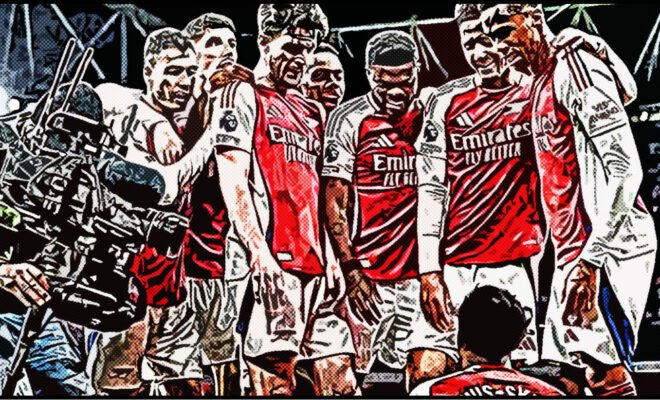Are Arsenal the Most Hated Club in England?

Few clubs in English football generate as much debate about their reputation as Arsenal. For us as supporters, this question comes up time and again: are we the most hated club in England? To many of us, Arsenal represent class, innovation, and one of the country’s great footballing traditions. To others, we embody arrogance, overconfidence, and the constant drama of a fanbase that rarely escapes the headlines. The question matters because it reflects not just on our identity, but on the broader culture of English football: which clubs command respect, which invite ridicule, and how perception often diverges from reality.
The strength of feeling around Arsenal is clear whenever the question is raised online. Some of us argue that criticism is simply a by-product of relevance, noting that when we were mid-table, few cared enough to attack us. Rivals, though, often describe Arsenal supporters as arrogant, over-celebratory, and quick to adopt a victim mentality when refereeing decisions go against us. Others take a longer view, pointing out that Arsenal have always been different, often breaking norms in ways that generated both admiration and backlash.
Our history supports that view. From Herbert Chapman’s innovations in the 1930s to Arsène Wenger’s radical changes in the 1990s, Arsenal have rarely blended into the background. We’ve been innovators, disruptors, and sometimes lightning rods for controversy. Whether we’re truly the most hated club in England depends on how one interprets those legacies, how rivalries shape sentiment, and how modern football culture amplifies every debate.
Fan Sentiment
The clearest picture of Arsenal’s reputation comes from fans themselves. Social media responses to the question were varied, but themes emerged quickly.
Among our own supporters, many dismissed the idea of unique hatred, framing criticism as envy. One of us pointed out that rivals once mocked Arteta as inexperienced, only for him to deliver consecutive second-place finishes, which “people hated because it proved them wrong.” Others noted how narratives keep shifting: when results can’t be used against us, detractors fall back on “VARsenal,” “Dark Arts FC,” or spending accusations. The sense is that hate isn’t about Arsenal doing something wrong but about others being uncomfortable with our progress.
Rival fans, however, take a different view. They accuse us of arrogance, entitlement, and overreaction—particularly online. Many complain about our “over-celebrations,” whether it was Odegaard’s pitch photo or Myles Lewis-Skelly mimicking Haaland. Arteta is often cited too, with his passion on the touchline labeled “try-hard” or excessive. For these critics, our swagger paired with near misses makes us easy targets.
There is also banter. Some rivals mock the very idea that Arsenal are uniquely hated, insisting United or Liverpool attract far more animosity. Others laugh at our perceived victim complex, suggesting we dramatize referee decisions more than most.
Finally, some voices struck a neutral tone. They argued that our vast online presence magnifies everything. As one fan admitted, “Our online fanbase makes us easy pickings.” The reality is that being this visible ensures strong reactions—good and bad alike.
Historical & Cultural Factors
Arsenal’s reputation for dividing opinion has deep roots.
When we moved from Woolwich in South London to Highbury in 1913, resentment brewed immediately, particularly among Tottenham supporters. That move cemented one of football’s fiercest rivalries and established us as London’s powerhouse club.
In the 1930s, Herbert Chapman changed English football forever. He introduced the WM formation, floodlights, numbered shirts, and European competition. Those innovations brought titles, but they also broke northern dominance and created envy that lingers to this day.
The Arsène Wenger era magnified this divide. Wenger introduced new standards for diet, fitness, and scouting. His teams played with elegance and technical precision, challenging the traditional physical style of the league. We became the first club to field an entire XI of non-British players and the first to start nine Black players. While many of us celebrated that inclusivity, rivals and sections of the media accused Arsenal of “abandoning English football.” Wenger himself was ridiculed as “Arsène Who?” before revolutionizing the league.
Our Invincibles of 2003–04, who went unbeaten in the Premier League, should have been celebrated without debate. Instead, rivals dismissed it as lucky or downplayed its significance. Combined with the fiery battles against Ferguson’s Manchester United, Arsenal were cast as both admired and loathed. Success brought respect, but it always came with a backlash.
Comparison to Other Clubs
To decide if Arsenal are the most hated, it helps to compare with others. Surveys say otherwise. A January 2025 OBLG poll of 2,000 UK residents ranked Manchester United top with 15% of the vote, Liverpool next with 8.45%, Manchester City third with 7.7%, and Arsenal fourth with 7.4%.
United’s reputation as the most hated is rooted in Ferguson’s dominance and accusations of referee favoritism. Liverpool divide opinion through their passionate fan culture, which rivals interpret as self-righteousness, and their defense of Luis Suárez after the Evra incident. Chelsea are associated with Abramovich’s oligarch wealth and episodes of racist behavior in the stands. City are heavily criticized for state-backed spending and the unresolved 115 charges of financial rule breaches.
Arsenal’s case looks different. We’re not accused of corruption, doping football finances, or outright scandal. Instead, our supposed “crimes” are arrogance, swagger, fan behavior, and visibility. This puts us in a different category: hated less for what we’ve done off the pitch, and more for how we represent ourselves and the scale of our voice in English football.
The Love/Hate Paradox
The irony is that much of the hate directed at Arsenal is also proof of relevance. When rivals mock our celebrations, it’s because those wins matter. When they roll their eyes at Arteta’s passion, it’s because they see a manager driving us forward. When they complain about Arsenal fans online, it’s because our numbers and presence are impossible to ignore.
Our place in English football has always ensured visibility. We are the biggest club in London, one of the most supported globally, and a team that has consistently shaped the game’s history. With that scale comes scrutiny. Rivals find fault because it’s easier than admitting we are once again competing at the top.
This pattern is familiar across football. United’s dominance bred both hate and admiration. Liverpool’s recent success brought equal measures of praise and irritation. Chelsea and City are derided for their ownership models but respected as contenders. For us, the difference is identity: Arsenal have always been about doing things differently—whether through diversity, innovation, or style. That uniqueness makes us targets, but it also makes us stand out.
Conclusion
So, are Arsenal the most hated club in England? On paper, no. United, Liverpool, and City rank higher in surveys. Yet Arsenal occupy a space all our own. We are always near the top of the list, and for reasons that reflect our identity rather than scandals or ownership controversies.
Our history of innovation, our fierce rivalries, and our global fanbase ensure that we are never ignored. Every high is amplified, every low is mocked, and every debate about us becomes national conversation. Hate, in our case, is not the opposite of relevance—it is proof of it.
We are not the most hated. We are something different: a club that is always at the center of attention, always sparking reaction, and always shaping the culture of English football. That is the Arsenal way, and we wouldn’t have it any other way.


